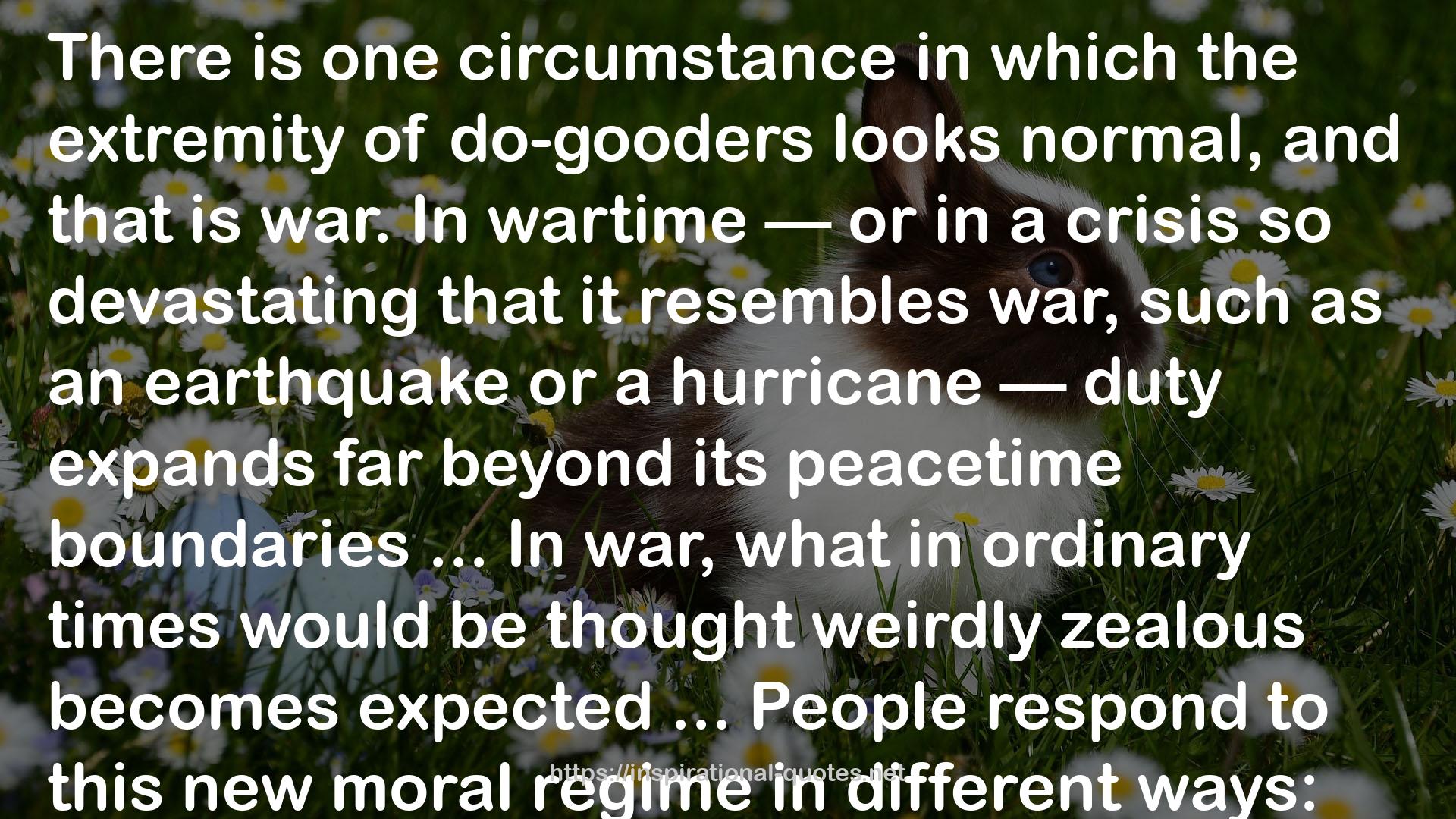" There is one circumstance in which the extremity of do-gooders looks normal, and that is war. In wartime — or in a crisis so devastating that it resembles war, such as an earthquake or a hurricane — duty expands far beyond its peacetime boundaries ... In war, what in ordinary times would be thought weirdly zealous becomes expected ... People respond to this new moral regime in different ways: some suffer under the tension of moral extremity and long for the forgiving looseness of ordinary life; others feel it was the time when they were most vividly alive, in comparison with which the rest of life seems dull and lacking in purpose... in wartime, duty takes on the glamour of freedom, because duty becomes more exciting than ordinary liberty.
This is the difference between do-gooders and ordinary people: for do-gooders, it is always wartime. They always feel themselves responsible for strangers — they always feel that strangers, like compatriots in war, are their own people. They know that there are always those as urgently in need as the victims of battle, and they consider themselves conscripted by duty. "
― Larissa MacFarquhar , Strangers Drowning: Grappling with Impossible Idealism, Drastic Choices, and the Overpowering Urge to Help
